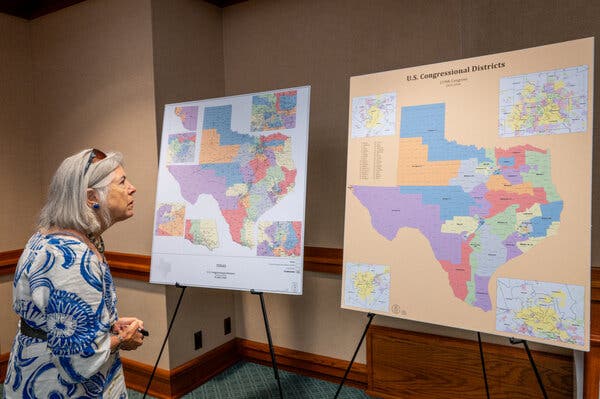BREAKING: A fierce redistricting battle is unfolding as Republican-controlled states—including Indiana, Missouri, Ohio, and potentially Florida—prepare to redraw congressional maps. This move could allow the GOP to secure up to seven additional House seats, drastically shifting the political landscape ahead of the 2026 midterm elections.
New reports confirm that these states may follow the lead of Texas and California in a strategic effort that could significantly benefit Republican candidates. As the redistricting process heats up, the stakes have never been higher, with implications that could influence control of the House for years to come.
Why This Matters NOW: The redistricting efforts could tilt the electoral playing field favorably for Republicans, making it crucial for Democrats to win the national popular vote by two to three percentage points to reclaim control of the House. This is alarming news for Democrats, who are already facing a challenging political climate.
If the proposed maps are enacted, projections show that Democrats would need significant margins in the popular vote to be competitive. Historical data indicates that even with gerrymandering, the current House map was relatively fair in 2024, allowing the popular vote winner a reasonable chance to secure the most seats. However, changes in these crucial states could shift that balance.
As officials navigate this contentious process, legal challenges, including those related to Section 2 of the Voting Rights Act, loom on the horizon. This adds another layer of complexity to an already fraught situation, with both parties preparing for an all-out war over electoral boundaries.
What’s Next: Watch for imminent announcements from state legislatures as they finalize their redistricting plans. Analysts are closely monitoring polling data and public sentiment, which could shift rapidly given the urgency of these developments. The decisions made in the coming weeks will play a pivotal role in shaping the 2026 elections.
Stay tuned for updates as the redistricting war unfolds, affecting not just states like Indiana and Ohio, but the entire nation’s political landscape. The implications of these changes could resonate far beyond local contests, impacting national governance and representation for years to come.








































































